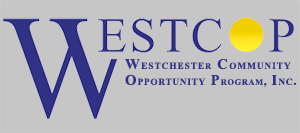
Far too many veterans are homeless in America. The SSVF Program helps veteran households (single veterans or veterans and their families) that are currently homeless or at risk of losing their housing. It provides temporary financial assistance and many other services that create stability.
It is estimated that between 130,000 and 200,000 veterans are homeless on any given night; three times that many veterans are struggling with excessive rent burdens and thus at increased risk of homelessness.
One out of every three homeless men who is sleeping in a doorway, alley or box in our cities and rural communities has put on a uniform and served this country.
By The Numbers…
40% OF HOMELESS ARE VETERANS
400,000 VETERANS WILL EXPERIENCE HOMELESSNESS THIS YEAR
97% OF THESE VETERANS ARE MALE
67% SERVED 3 OR MORE YEARS
A disproportionate amount – approximately 40% – of homeless men are veterans, even though veterans comprise only 34% of the general adult male population. The National Coalition for Homeless Veterans estimates that 400,000 veterans will experience homelessness during the course of a year and 97% of those homeless veterans will be male. A large percentage – 67% – served three or more years in the armed forces protecting our country, and 47% are Vietnam Era Vets.

The SSVF Program is a program that is within the Veteran’s Administration continuum of care and is part of a 5-year initiative to end Veteran Homelessness. The goal of the SSVF Program is to promote housing stability among very low-income Veteran families who reside in or are transitioning to permanent housing. We understand that homeless individuals are often unemployed, unable to work, or have such low incomes that they cannot afford housing. Some homeless individuals have disabling mental health, substance abuse, or physical conditions that lead to, or complicate, their homeless situation.
Who is eligible for SSVF Services?
- The veteran may be a single individual, or part of a family in which he/she is the head of household
- The veteran’s discharge status must be under conditions other than dishonorable
- The individual or family must be very low income, making less than 50% of the area median income (AMI)
- Housing status: Currently residing in permanent housing and at risk of losing housing and becoming literally homeless without SSVF assistance; Currently homeless, scheduled to become a resident of permanent housing within 90 dayspending the location of permanent housing or; Has exited permanent housing within the previous 90 days in order to seek housing that better fits with needs
How do we go about helping Veterans?
A case manager will work with each veteran or veteran family to help them access the following benefits:
- Housing search assistance
- Temporary financial assistance for rent, utilities, transportation, childcare, education, and other qualifying services
- Job coaching and assistance with job search and placement
- Assistance obtaining VA benefits
- Assistance obtaining other public benefits
- Coordination with other resources within the community
Testimonials:
Main Contact Number:
(914) 418-9855
Email for SSVF Referrals – ssvfreferral@westcop.org
Residents of Westchester, Rockland & Putnam
Phone: (914) 595-0968
28 East 1st St.
Mt. Vernon, NY 10550
Residents of Dutchess, Ulster, Orange & Sullivan
Phone: (845) 926-9914
244-250 Broadway
Newburgh, NY 12250
SSVF Director
Contact: Tanisha Terry
Email: tterry@westcop.org
Phone: (845) 391-0825
If you know a veteran in a housing crisis? Contact us immediately!
Make a telephone referral: (914) 418-9855
Email Referrals & Intake Documentation: ssvfreferral@westcop.org
VA Crisis Hotline: Dial 988 then press 1, Text 838255

